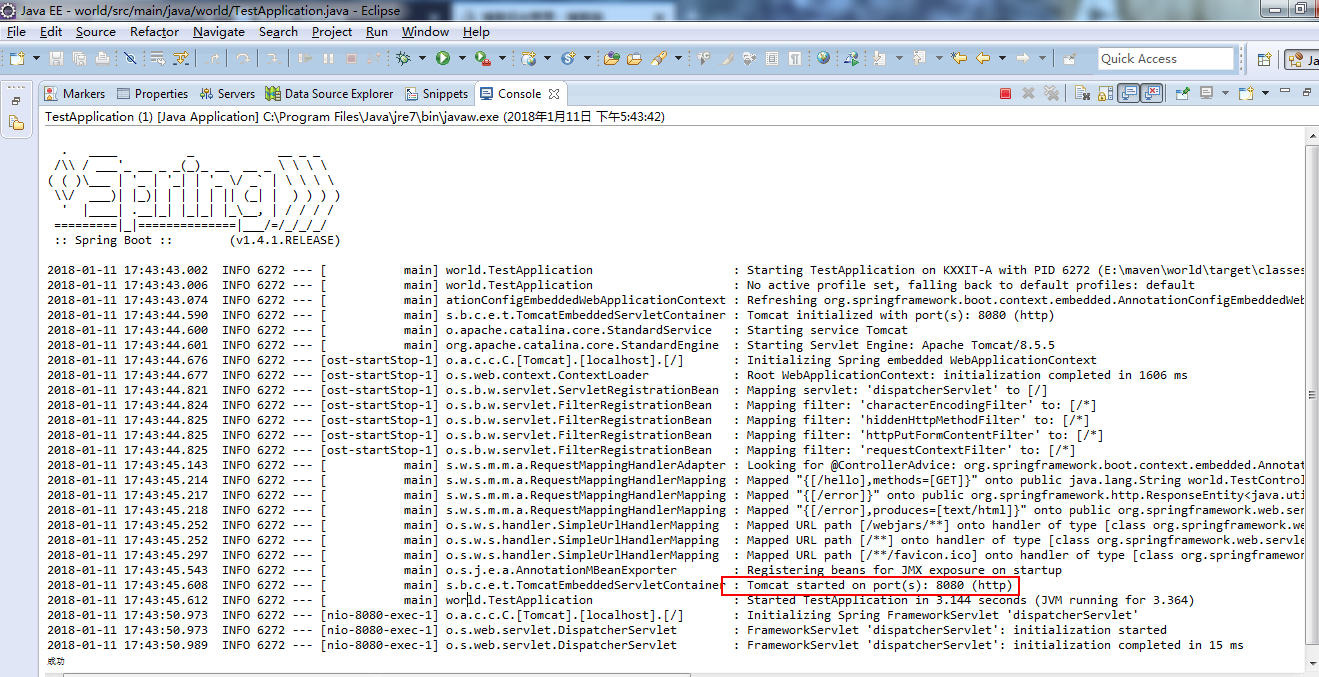第一个应用:
1:创建一个mavenWEB工程
pom.xml文件中加入依赖:
<parent>
<groupId>org.springframework.boot</groupId>
<artifactId>spring-boot-starter-parent</artifactId>
<version>1.4.1.RELEASE</version>
</parent>
<dependencies>
<dependency>
<groupId>org.springframework.boot</groupId>
<artifactId>spring-boot-starter-web</artifactId>
</dependency>
</dependencies>
2:写一个测试类:
package world; import org.springframework.boot.SpringApplication; import org.springframework.boot.autoconfigure.SpringBootApplication; @SpringBootApplication public class TestApplication { public static void main(String[] args) { SpringApplication.run(TestApplication.class, args); } }
这段代码运行的时候相当于启动一个服务器。说明启动在http://localhost:8080上。

3:第一个HelloWorld
@RestController
public class TestController { @RequestMapping(value="/hello",method=RequestMethod.GET) ---是跳转到hello。get方式提交 public String say(){ System.out.println("成功"); return "hello spring boot"; } }
1. Controller, RestController的共同点
都是用来表示Spring某个类的是否可以接收HTTP请求
2. Controller, RestController的不同点
@Controller标识一个Spring类是Spring MVC controller处理器
@RestController: a convenience annotation that does nothing more than adding the@Controller and @ResponseBody annotations。 @RestController是@Controller和@ResponseBody的结合体,两个标注合并起来的作用。
运行:
http://localhost:8080/hello
4:项目属性配置

这句话的意思是:修改端口号
创建一个对象:
package world; import org.springframework.boot.context.properties.ConfigurationProperties; import org.springframework.stereotype.Component; @Component @ConfigurationProperties(prefix = "student") public class Student { private String name; private Integer age; public String getName() { return name; } public void setName(String name) { this.name = name; } public Integer getAge() { return age; } public void setAge(Integer age) { this.age = age; } }
知识:
@Component 这个注解就是加入bean
@ConfigurationProperties(prefix = "student") 这个注解就是把student作为配置文件的前缀。

应用:
@RestController public class TestController { @Autowired private Student student; @RequestMapping(value="/hello",method=RequestMethod.GET) public String say(){ System.out.println("成功"); return student.getName()+student.getAge(); } }